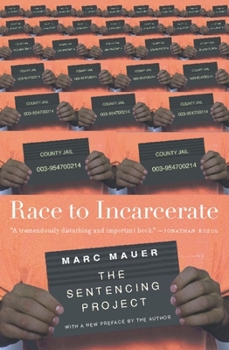Race to Incarcerate
Select Format
Select Condition 
Book Overview
A stunning examination of how the United States became the incarceration capital of the world, from one of the country's leading experts on sentencing policy, race, and the criminal justice system In this revised edition of his seminal book on race, class, and the criminal justice system, Marc Mauer, former executive director of one of the United States' leading criminal justice reform organizations, offers the most up-to-date look available at three decades of prison expansion in America.
Race to Incarcerate tells the tragic story of runaway growth in the number of prisons and jails and the overreliance on imprisonment to stem problems of economic and social development. Called "sober and nuanced" by Publishers Weekly, Race to Incarcerate documents the enormous financial and human toll of the "get tough" movement, and argues for more humane--and productive--alternatives.






